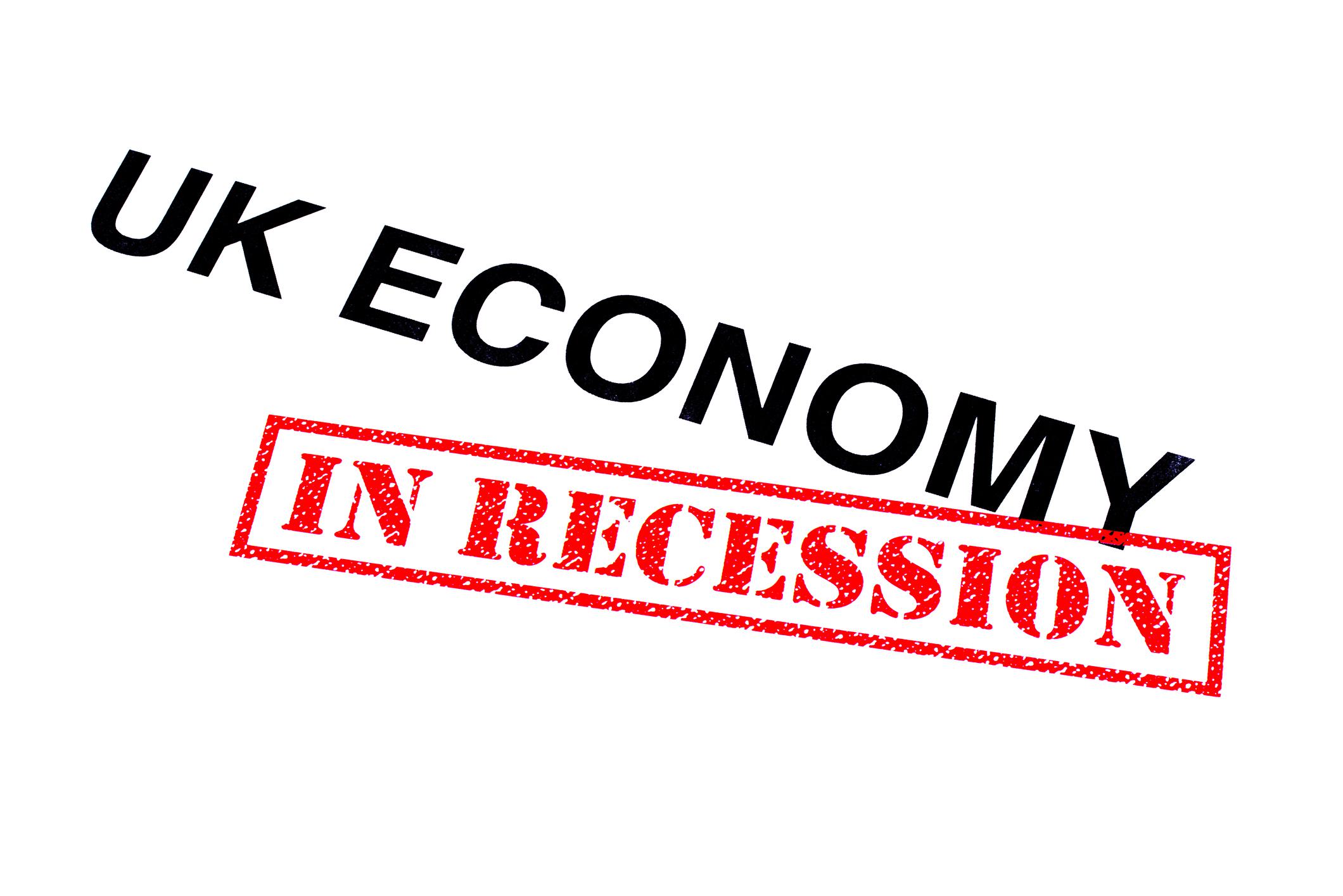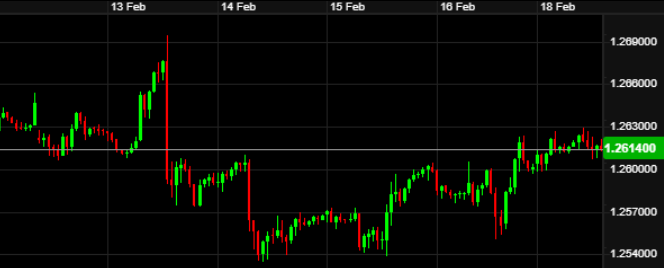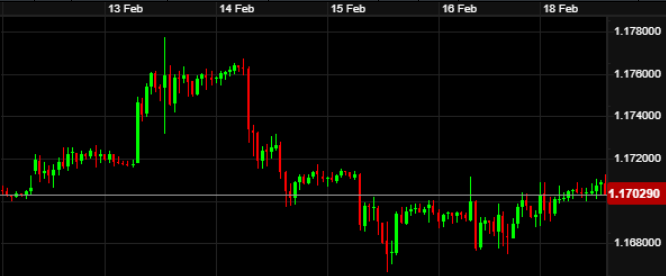ACM Update 19-02-24

As confirmed last week, the UK closed out 2023 by slipping into a “technical recession”. Not good news for Rishi Sunak nor Chancellor Jeremy Hunt, whose budget is now only a few weeks away. UK inflation remains sticky, but retail sales bounced back in January.
In the US, the chances of an interest rate cut in the first half of the year are plummeting, as inflation there also remains stubborn. This Wednesday we get to see just how little the topic of a rate cut was discussed by Powell & Co, with the release of the minutes from the latest Federal Reserve meeting.
Little to no growth combined with stubborn inflation. The dreaded scenario which economists label “stagflation” and politicians are desperate to avoid. For now, it seems that this is exactly the scenario the UK finds itself in. But perhaps only for a short period.
UK GDP figures have been threatening bad results for a while, as quarterly percentage growth numbers have been bobbing either side of 0% for the last couple of years. However, Q3 & Q4 of 2023 were the first two where the economy shrank for two consecutive quarters. This is enough to tix the box for the UK being in a “technical recession”, defined as two consecutive quarters of negative economic growth.
With other data releases for December being lacklustre, it didn’t come as too much of a surprise that the overall December growth figure was anything but growth. This closed out Q4 with a shrinking of the economy of -0.3%, not helped at all by households cutting back on spending over the Christmas period. The news came in as a real dampener for sterling, seeing drops of 0.25% against most major currencies on Thursday morning.
Tuesday morning showed a more positive picture for the UK employment market however. Overall, unemployment fell to its lowest level since February last year, at 3.8%. The number of those claiming unemployment. benefits rose by less than expected, and most importantly the average earnings index is still running at 5.8%, well above inflation. These stats point to favourable spending power for British consumers, for now at least.
Speaking of inflation, the latest reading for January came in at 4.0%, mirroring the December number. This was in fact better than experts had forecast, with a slight rise in energy bills expected to have pushed inflation back up. Food prices were the biggest contributor to the fall, with their first monthly drop in more than two years. Definitely a positive step.
Bank of England Governor, Andrew Bailey, stressed that inflation remaining stable does not mean cause for a change in interest rates yet. He pointed out that the last month’s figure was slightly over expectation, whereas this month was just under. Thus a status quo is maintained.
Most analysts expect the recent poor economic performance for the UK to be somewhat short lived, forming a “mild” recession. This theory was further backed up by a bounce back in UK retail sales, in data released on Friday morning. The metric bounced back by 3.4% in January, having seen a month on month drop of fractionally less than that in December. British consumers are being cautious with their spending, except when discounts were available in November (Black Friday) and January’s new year sales.
Despite officially being in a very mild recession, the performance of the economy is showing green shoots of recovery as we start 2024. These are all good signs, and now the worst of the economic news is behind us (fingers crossed), sterling should be on a slightly more stable and positive footing. UK interest rates remaining “higher for longer” should also support GBP.
Speaking of interest rates remaining higher for longer, the last few weeks have seen greater convergence between market expectations and those of the Federal Reserve, when it comes to interest rate projections.
Gone are the “near certainties” of a Fed rate cut in Q1, now realigned more to “over the summer” for the first interest rate cuts to arrive. The Fed themselves have stated for a while that market expectations were far too soon for rate cuts, and so this now seems. A realignment of market forecasts has seen the Dollar regain some strength recently against other major currencies.
Fed policymaker Raphael Bostic again reiterated last week that there is “no rush” to lower interest rates, given the relative strength of the US jobs market and economic growth. The committee want to make sure that inflation is heading sustainably towards their 2% mandate, before taking action.
Indeed, the latest round of US inflation numbers showed inflation rising by more than expected in January, remaining at 3.1%. Admittedly this was down from 3.4% in December, but nothing like the 2.9% markets were expecting. This all but sealed interest rates to remain at an elevated level in the next Fed meeting on 20th March, and saw the Dollar gain around 0.75% as a direct result on Tuesday afternoon.
The only real disappointment in the latest round of US data releases, was the January retail sales numbers. These showed a month-on-month reduction of -0.8% versus December. This obviously inverts the figures seen from the UK, and was the worst monthly drop for the US metric since March of last year. A slowdown in consumer spending could be an indicator of an overall economic slowdown, so the Federal Reserve will watch on with interest.
Movements last week for Sterling against the Dollar can be seen in the chart below:

Growth is not only a problem for the UK at the moment, but for continental Europe too it seems. The bloc followed up a -0.1% contraction in Q3 of last year, with a flat 0.0% in Q4. This comes from the latest round of Flash GDP numbers and doesn’t paint the prettiest of pictures. It does however avoid (just) the technical recession seen in the UK for the same period.
The bad news was further compounded by a speech from President Lagarde, in which the ECB moved to download their growth forecast for 2024. The bank now sees the Eurozone achieving a total growth of 0.8% over the year, as well as expecting inflation to hit 2.7% for the same time period, lower than its previous suggestion of 3.2%.
Markets still expect the ECB to be cutting interest rates in April, despite suggestions from Lagarde that this is too soon. Most corners of the ECB are aligned with her and are more looking towards June for a policy change. One of her fellow policymakers however, Edward Scicluna (Governor of the Central Bank of Malta), suggested he is “open” to the idea of a March rate cut though.
Germany’s head of the Bundesbank, Joachim Nagel, sees it more about playing the long game with monetary policy. It seems he has done his homework and notes that history suggests it is worse to reduce interest rates too soon rather than too late. He cites previous instances of cutting too soon, which then lead to “countermeasures”, thus reversals of policy to correct.
Overall, the Euro spent the week regaining some ground against the “in recession” GBP. Versus the Dollar, the US inflation release on Tuesday drove the Dollar in the first half of the week, but the Euro had regained all ground by close of business on Friday.
Recent moves for GBP-EUR can be seen in the chart below:

The week ahead:
Monday – US BANK HOLIDAY, CANADIAN BANK HOLIDAY
Tuesday – Australian RBA meeting minutes (00:30 UK Time), Canada CPI Inflation (13:30)
Wednesday – Fed Bostic speech (13:00), MPC Dhingra speech (14:00), Fed meeting minutes (19:00)
Thursday – EU Flash Manufacturing & Services PMI (09:00), UK Flash Manufacturing & Services PMI (09:30), EU CPI Inflation (10:00), ECB meeting minutes (12:30), US Unemployment Claims (14:45)
Friday – German GDP (07:00), MPC Greene speech (08:00)
Despite the vast amount of data releases last week, GBP remained in a 1% range against both the Euro & US Dollar, as well as most other major currencies. As has been the case for a while now, monetary policy is still the biggest driver of exchange rates at present, with all other factors influencing that performing the supporting roles.
With a US bank holiday on Monday (President’s Day) and little of note on Tuesday, expect a quieter than usual start to the week. Wednesday meanwhile contains speeches from Raphael Bostic of the Federal Reserve and the MPC’s Swati Dhingra. The two have opposing views on monetary policy at present. Bostic is keen to wait and see, letting the data do the talking in the US. Dhingra meanwhile thinks the UK economy is overdue a rate cut, and indeed voted for one on 1st February.
The Federal Reserve meeting minutes will be released at 7pm UK time on Wednesday evening. These will show where the overall consensus stands amongst the Fed and whether Powell’s comments are indeed that of the majority. Despite a few outliers, we expect this to be the case. Any talk of March interest rate cuts, or indeed pushing them further back into the year will drive Dollar movement midweek.
Amidst the latest round of PMI data for the UK and Europe, the latest EU Inflation figures for January will be released, expected to show the bloc now running at 2.8%. Who would have thought that the Eurozone would have the lowest rate of inflation in early 2024, given how slow off the mark the ECB were with their interest rate hikes.
Speaking of which, the equivalent ECB meeting minutes from their end of January meeting are also released. These should mirror the statements recently from Lagarde, suggesting that there was no discussion of a rate cut during the committee meeting. German GDP and a speech from the Bank of England’s newest member, Megan Greene, round out the week.
Given both the Federal Reserve and European Central Bank meeting minutes are released this week, we can expect some movement in and around. Any hint of cuts to come from either would be GBP-positive, but this seems unlikely for now.
In the current climate, protecting yourself against such volatility is key. Make sure to reach out to the team with regards to any upcoming requirements you may have and we can discuss in more detail the different approaches available to you.
Have a great week.